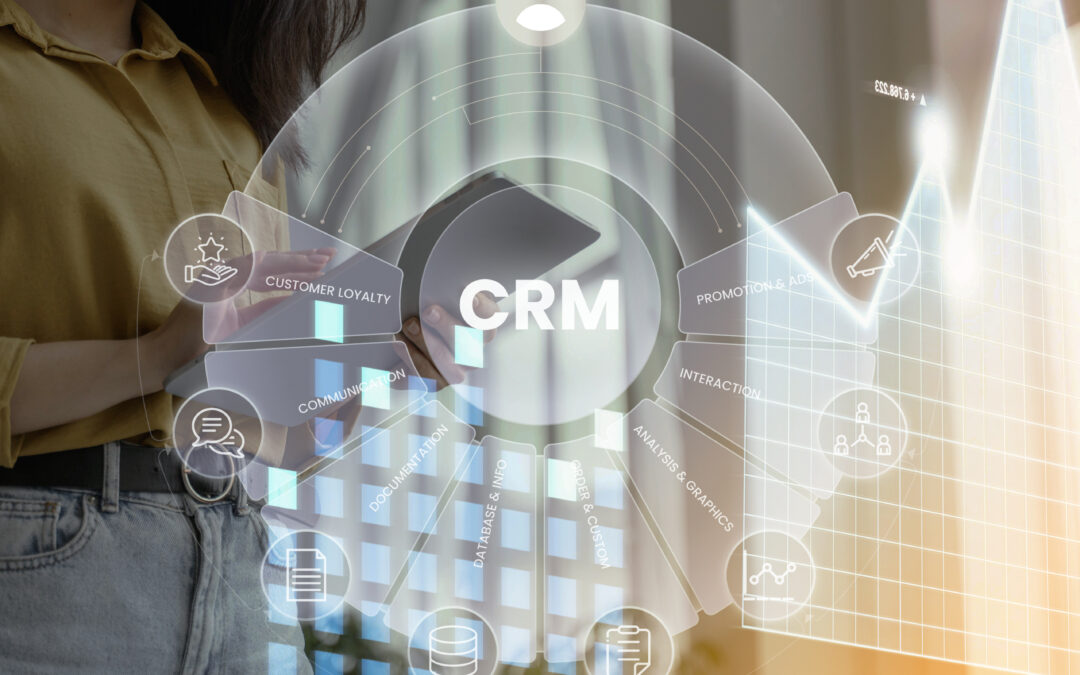In today’s hyper-competitive business environment, Customer Relationship Management (CRM) systems have evolved from being a helpful tool to an absolute necessity. Whether you’re running a small business or managing a global enterprise, a robust CRM system is essential for optimizing customer relationships, driving revenue, and creating a unified experience across your organization.
But the question that leaves many businesses puzzled is: What features should a robust CRM system include? In this comprehensive guide, we’ll break down every critical feature a CRM should offer to ensure maximum functionality, scalability, and ROI. If you’re planning to invest in a CRM or upgrade your current one, this article is your ultimate checklist.
1. Centralized Contact Management
At the heart of every CRM system lies its contact management feature. This is where all customer information — from names and phone numbers to past interactions and purchase history — is stored in a centralized database.
Why It Matters:
-
Provides a 360-degree view of each customer.
-
Eliminates data silos between departments.
-
Facilitates personalized communication.
Modern CRMs like HubSpot and Salesforce offer dynamic contact profiles that update in real-time based on interactions, which can drastically improve customer engagement.
2. Sales Pipeline Management
Your CRM should make it easy to visualize and manage your sales pipeline. This includes tracking leads, identifying where prospects are in the funnel, and taking action to move them forward.
Key Features:
-
Drag-and-drop interface for easy pipeline updates.
-
Customizable sales stages.
-
Integration with email and phone systems.
A powerful CRM will let you set goals, assign tasks, and automate follow-ups, ensuring nothing falls through the cracks.
3. Marketing Automation Tools
Marketing automation transforms your CRM from a passive database to an active engagement platform. This includes features like:
-
Lead nurturing workflows
-
Social media scheduling
-
Segmentation based on behavior
With these tools, CRMs like Zoho CRM and ActiveCampaign help businesses run targeted campaigns that convert leads into loyal customers.
4. Customizable Dashboards and Reporting
The best CRM systems come equipped with custom dashboards and real-time analytics that empower your team to make informed decisions.
Metrics to Track:
-
Conversion rates
-
Revenue per customer
-
Sales team performance
-
Email open and click-through rates
Look for CRMs with visual reporting tools like pie charts, bar graphs, and heatmaps, which simplify complex data into digestible insights.
5. Workflow and Task Automation
A robust CRM system should automate repetitive tasks such as:
-
Sending welcome emails
-
Updating lead statuses
-
Assigning follow-up tasks
-
Notifying teams about new opportunities
Automation not only boosts productivity but also ensures process consistency. Platforms like Pipedrive shine in this area with their intuitive automation builders.
6. Integration with Third-Party Applications
Your CRM doesn’t operate in a vacuum. It needs to seamlessly connect with your:
-
Email platform (Gmail, Outlook)
-
Marketing tools (Mailchimp, Hootsuite)
-
Accounting software (QuickBooks, Xero)
-
Customer support tools (Zendesk, Freshdesk)
-
E-commerce platforms (Shopify, WooCommerce)
The more integrations, the better your CRM can become the central hub for all your business operations.
7. Mobile Accessibility
Today’s workforce is more mobile than ever, and your CRM needs to keep up. A mobile-accessible CRM ensures that your sales reps and support teams can access customer data on the go, even when offline.
Must-Have Mobile Features:
-
Access to customer profiles
-
Real-time notifications
-
Voice-to-text notes
-
Mobile-friendly dashboards
CRMs like Insightly and Nimble offer full-featured mobile apps for remote productivity.
8. Security and User Permissions
A robust CRM system should have enterprise-grade security features to protect your customer data and ensure compliance with regulations like GDPR and CCPA.
Security Essentials:
-
Role-based access control
-
Two-factor authentication (2FA)
-
Data encryption in transit and at rest
-
Audit logs for all activities
Without strong security protocols, your CRM could become a liability rather than an asset.
9. Customer Support and Service Management
The CRM should go beyond sales and marketing to include support and service modules. This allows you to:
-
Track support tickets
-
Log customer issues
-
Assign cases to specific agents
-
Monitor resolution times
Platforms like Freshsales excel in blending CRM and helpdesk functionalities into one seamless platform.
10. AI and Predictive Analytics
Modern CRMs are increasingly powered by artificial intelligence. These systems analyze patterns to provide:
-
Sales forecasting
-
Personalized content recommendations
-
Predictive customer behavior modeling
For example, Salesforce’s Einstein AI or Zoho’s Zia AI offers smart insights that help your team focus on high-priority leads and opportunities.
11. Email and Communication Tracking
A CRM should automatically track all customer communications, including:
-
Email opens and clicks
-
Call logs and recordings
-
Chat transcripts
-
Meeting notes
This not only ensures a seamless customer experience but also creates a record of every interaction, which can be vital during negotiations or dispute resolutions.
12. Scalability and Customization Options
As your business grows, so should your CRM. Choose a system that allows for:
-
Adding new users and roles
-
Creating custom fields and modules
-
Adjusting workflows as processes evolve
Custom CRMs like SugarCRM and Bitrix24 are excellent for businesses that anticipate rapid scaling or have niche operational needs.
13. Lead and Opportunity Management
An efficient CRM should allow users to:
-
Capture leads from multiple sources (web forms, social, ads)
-
Assign leads automatically based on rules
-
Score leads using AI or custom criteria
-
Convert leads into deals with a single click
This not only saves time but also ensures no potential customer is overlooked.
14. Social CRM Capabilities
Social CRMs integrate with platforms like Facebook, Twitter, LinkedIn, and Instagram to:
-
Monitor brand mentions
-
Engage with prospects directly
-
Capture leads from social channels
-
Schedule posts and track performance
By blending CRM with social media tools, businesses can offer real-time engagement and improve their online reputation.
15. User-Friendly Interface
Even the most powerful CRM is useless if your team doesn’t use it. A robust CRM must be:
-
Intuitive and easy to navigate
-
Well-documented with tutorials
-
Customizable for different roles
Platforms like Monday.com and ClickUp are popular due to their clean interfaces and ease of use.
16. Multichannel Communication Support
Customers expect to reach you through their preferred channel. Your CRM should offer support for:
-
Email
-
Phone
-
Live chat
-
SMS
-
WhatsApp
-
Social media DMs
Multichannel CRM systems allow for omnichannel customer journeys, improving satisfaction and response times.
17. Customer Journey Mapping
A top-tier CRM will let you map the customer journey, helping your team understand the full lifecycle from awareness to loyalty.
Benefits:
-
Identify bottlenecks in conversion paths.
-
Personalize outreach based on behavior.
-
Improve retention with targeted actions.
This is particularly important for B2B CRM solutions where sales cycles are longer and more complex.
18. Training and Customer Support
No matter how intuitive a CRM is, having strong training resources and responsive customer support is essential.
Look for:
-
Onboarding programs
-
Webinars and tutorials
-
Live chat support
-
Dedicated account managers
Well-supported users are more likely to embrace and maximize the potential of the system.
Conclusion: Build Smarter Relationships With a Powerful CRM
In summary, a robust CRM system isn’t just a tool — it’s a strategic asset that aligns your sales, marketing, and customer service teams around a single source of truth. Whether you’re aiming to improve customer retention, drive more sales, or optimize internal operations, the right CRM will empower your team to work smarter, not harder.
When choosing a CRM, look beyond the flashy features and focus on how well the system fits your business processes, scales with your growth, and enhances the customer experience. From automation and analytics to integrations and mobile support, every element plays a role in building a competitive, future-ready organization.














